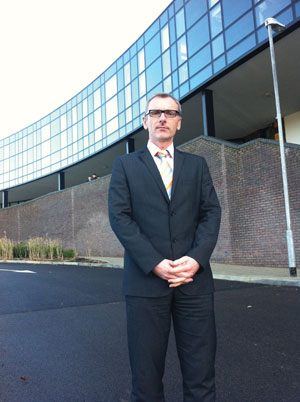Frank le Duc: The Vote
Brighton and Hove’s catchment areas may be scrapped as work starts on a major review of secondary school admissions

Brighton and Hove’s catchment areas may be scrapped. The prospect is one of the possibilities being considered as part of a review of secondary schools admissions policy. If they are abolished, places at oversubscribed schools are likely to be allocated to those who live closest. If they are kept, they may well be redrawn to reflect population changes.
Research is due to start this month as academics at Brighton University explore “stakeholders’ perceptions of the existing admissions procedures”. It should be completed before the summer holidays next year. The work was commissioned by Brighton and Hove City Council which hopes to finalise any policy changes in March 2016. The new admissions policy will affect children starting secondary school in September 2017 – those currently in year 4.
At a special meeting of the council’s Children and Young People Committee in July, members were told the main reasons for the review in a report by Michael Nix, the council’s head of education planning and contracts. It said: “Key drivers for this review include the growth in secondary school student numbers, which will continue throughout this decade and beyond; the fact that some catchment areas already have or soon will have insufficient school places for the number of children living within them who are likely to want a school place; and finally, the fact that even with this growth some catchment areas have too few children living within them, with the result that there are too many empty places in some schools.
“To secure sufficient places for the growing number of secondary-age children in the city it will be necessary both to provide new places and fill the places that are already available. The admissions procedures are an important factor in achieving the objective of securing sufficient places.”
“Even if the proposed changes are superbly crafted, expect the gloves to come off”
The line about filling the places that are already available suggests a commitment to making the most of the multimillion-pound new buildings in Portslade and Falmer. They were provided in partnership with the Aldridge Foundation for the Brighton Aldridge Community Academy (BACA) and the Portslade Aldridge Community Academy (PACA). The council co-sponsors PACA.
As with Patcham High and Hove Park, improved exam results may help the two academies win greater acceptance. One BACA student who attended the Children and Young People Committee meeting in July, 16-year-old Riziki Millanzi, said: “BACA is going to become more popular. It’s a very good school.” Councillor Sue Shanks, praising Riziki’s contributions to the meeting, said: “You are such a good advert for BACA.”
One of the school’s difficulties in filling places is a side-effect of the growth of the universities. Many homes in BACA’s catchment area – Moulsecoomb, Bevendean and Coldean – are now student digs. They used to be family homes. But even if BACA and PACA fill all their places, Councillor Shanks, who chairs the Children and Young People Committee, believes that a new secondary school is needed to meet demand.
If a new school is on the cards, it looks unlikely to be built where the need is greatest because of a lack of suitable space and a shortage of money. Instead it could go in Toad’s Hole Valley, funded by the developer of hundreds of new homes there, even though Hangleton already has two secondary schools – Blatchington Mill and Hove Park.
Another member of the committee, Councillor Andrew Wealls, summed up the view of many when he said: “There’s never a perfect solution.”
Three of the committee members remember the previous review which reported seven years ago and set the current catchment areas and created the “lottery” or random allocation policy. One of them, Councillor Jeane Lepper, said: “I’ve still got the scars!”
If the controversy and heated debate last time round is any guide, councillors can expect parents to start taking notice in just over a year’s time when the proposed changes emerge.
A two-month consultation from November next year will provide a focus. Many parents care passionately about their children’s education. Even if the proposed changes are superbly crafted, expect the gloves to come off.




















